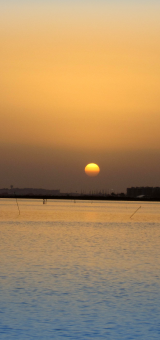
Results summary
Stakeholder dialogue during the decision-making process;
Understanding terms and concepts
Social and governance aspects represent 50% of Ria Formosa aquaculture problem
Modelling framework and sustainability analysis
Analyse the overall GDP of the Ria Formosa, including capture fisheries, aquaculture, salt extraction, and tourism (sector analysis)
The role of depuration centers needs to be clarified
The public administration needs to ensure that the farmers have unrestricted access to depuration facilities
About 4% of the workforce in the region (Faro, Olhão, and Tavira) might be directly employed in clam aquaculture;
The first sale revenue corresponds to 2.5-7.5% of the local GDP
Ria Formosa waters according to the EU Shellfish Waters Directive (2006/113/EEC), are considered as Class B;
Depuration certificate is required for sale;
Production and value of aquaculture
